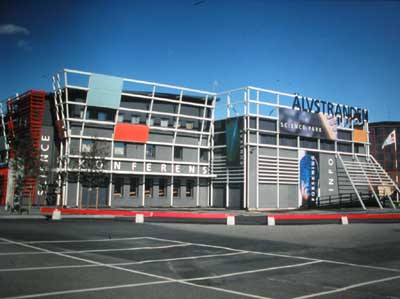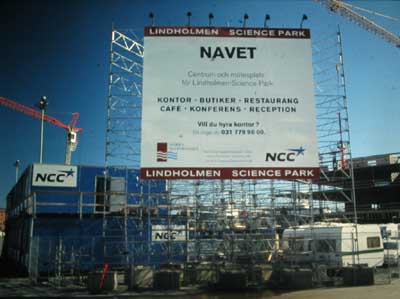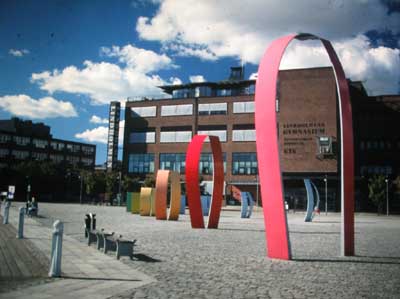
The last pictures we have just seen are from the other side of the river in Göteborg, an area called Älvstranden. Here we have the information centre for the so-called Älvstranden project. It's a very interesting project in this context, because it shows the paradigm shift from industrial capitalism to a capitalism built upon information technology. Älvstranden has been an area of wharfs and shipyards for the last centuries, and in the 20th century also Volvo had started major car factories there. During the big economic crisis in the 1970s the area faced major troubles, the shipbuilding industry crashed and in the 80s it was decided to reconstruct that part of the city with a focus on the research and production of new information technologies. The Älvstranden project is a good example of a public - private partnership: it's a collaboration run by the city council of Göteborg, educational institutions such as the university and corporates like Ericsson and Volvo. In this info-centre you can see a big presentation of the enterprise, with scale models, sketches and diagrams, showing how greta and important the project is and how good everything works out. It's the sort of selfpresentation we could also find on the big construction site of the Potsdamer Platz in Berlin, the Neue Mitte centre.

The Älvstranden Project runs under the slogan of "Den Goden Staden" - the Good City. Here you have all the keywords of neoliberalism, standing for it's attempt to integrate every aspect of life under the totalist umbrella of capitalist imperatives: work, housing, education, economy, science, culture and recreation.


The cultural field again plays a central role: cultural events and art exhibitions pioneered the wasteland some years ago by bringing people to Älvstranden again for the first time and making them familiar with the area.

Here we have some fancy new apartments. Geographically these exquisite and expensive living area is being constructed rather close to the traditional housing complexes of Ävstranden, which are mostly cheap and bad complexes for workers.